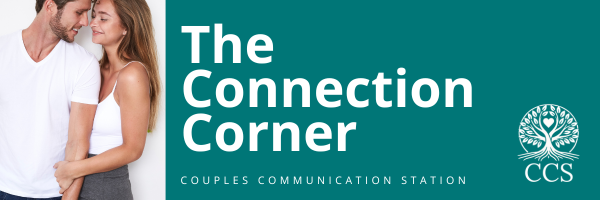- Oct 25, 2025
The Hypocrisy Trap: When Partners Expect Vulnerability but Refuse to Offer It
- Amanda Villicana
- Relationship Communication, Emotional Wellness & Intimacy, Communication Skills, Relationship Challenges
- 0 comments

They say they want honesty.
They say they want openness.
They say they want you to be “real.”
But the moment you show emotion, frustration, sadness, fear, or even tears, they shut down, roll their eyes, or say, “You’re being too sensitive.”
Sound familiar?
This is the hypocrisy trap: when one partner demands vulnerability but isn’t willing (or able) to offer it in return. It’s one of the most quietly damaging patterns in relationships because it promises intimacy while withholding the safety needed to make it possible.
The Paradox of “Open Up to Me”
In emotionally imbalanced relationships, one partner often takes on the role of the seeker, the one longing for closeness and emotional connection. The other plays the role of the controller, craving loyalty, trust, and openness, but without wanting to expose their own heart.
They might say:
“I want you to tell me how you feel.”
But what they mean is:
“I want access to your vulnerability, not a mirror for mine.”
And that’s the catch. Real intimacy isn’t one-sided. It can’t thrive when one person expects transparency but hides behind defensiveness, pride, or fear of appearing weak.
Why It Happens
This dynamic is often rooted in fear, not malice.
The partner who refuses to be vulnerable may have grown up believing emotions equal weakness or loss of control. So, they crave the closeness vulnerability brings but resist what it requires: openness, accountability, and humility.
Their internal dialogue might sound like this:
“I want connection, but I don’t want to feel exposed.”
“I want you to trust me, but I’m not sure I can trust myself to handle your emotions.”
Unfortunately, this creates an emotional double standard, where one person becomes the “emotional anchor” of the relationship while the other remains safely on the shore.
The Hidden Cost of Emotional Hypocrisy
Over time, this imbalance starts to corrode the relationship from the inside out.
You might notice that:
You begin to filter what you share, afraid your honesty will trigger defensiveness.
You start to carry the emotional labor of keeping the peace.
You feel alone, even when you’re together.
The partner demanding vulnerability doesn’t realize they’re creating emotional scarcity, asking for closeness while simultaneously closing the door on it.
Breaking the Cycle
Here’s the truth: you cannot force someone to be vulnerable. But you can create an environment that encourages it, or protect yourself when it’s clear the balance won’t shift.
Here’s where to start:
1. Recognize the Double Standard
Notice when a partner demands openness but deflects their own accountability. That awareness is the first step in breaking the pattern.
2. Name What’s Happening
Try saying, “I want to share openly with you, but when my feelings are dismissed, it makes me feel unsafe doing so.” This isn’t blame, it’s clarity.
3. Lead by Example, Not Exposure
Vulnerability doesn’t mean emotional nakedness. You can model honesty while maintaining self-respect. Offer openness in safe amounts, not at the cost of your peace.
4. Set Emotional Boundaries
If someone demands your openness but punishes your feelings, you have the right to pull back. Boundaries aren’t rejection; they’re protection.
5. Encourage Emotional Growth
If your partner struggles to express themselves, encourage (not force) them to explore it. Counseling, journaling, or couples communication tools can make vulnerability feel less threatening.
The Takeaway
Real vulnerability can’t exist without mutual safety.
You can’t build an emotional connection on one-sided openness.
If someone wants your trust, they must also earn it through empathy, consistency, and the willingness to meet you halfway.
Because love isn’t just about being seen, it’s about seeing each other.
And that starts with both hearts being brave enough to show up, not just one.
Reflection for You
Have you ever found yourself in a relationship where you were expected to open up, but your feelings weren’t received with care? How did you protect your peace while still showing up authentically?